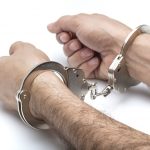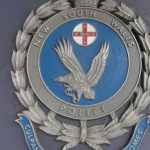Are “Anti-Bikie” Laws Effective?

Laws surrounding controls imposed on alleged organised crime groups have attracted controversy since they were introduced in 2013, when motorcycle clubs were officially declared criminal organisations in NSW. Once declared a criminal organisation, groups face certain restrictions and limitations, which many have argued are unfair.
What does the law say about declared criminal organisations?
The changes to the law were implemented to allow the supreme court to make decisions on whether or not to declare a group a criminal organisation. Previously, decisions were made by an eligible supreme court judge. Under the changes, included in the Crimes (Criminal Organisations Control) Amendment Bill 2013, not only does the supreme court determine which organisations are considered “criminal” organisations, the court also determines what constitutes criminal intelligence.
Other changes introduced in 2013 included an expansion of the factors to be considered before declaring an organisation “criminal” and provision for mutual recognition of declarations and control orders across multiple states and territories. The definition of serious criminal activity was also altered to include obtaining benefits from illegal conduct even for people who aren’t charged or convicted of the offence, making the legislation consistent with the Criminal Assets Recovery Act 1990.
The main purpose of the changes was to allow motorcycle clubs to be declared criminal organisations and therefore restrict the movements and activities of their members. The changes were part of a raft of “anti-bikie laws” that were being introduced at the time.
Why the legislation is unfair
Changing the way that criminal intelligence is defined has implications for members of clubs and groups that wish to defend themselves against allegations of organised crime. Evidence that involves criminal intelligence must by law be aired in a closed hearing, which means that the evidence itself is withheld from those accused who are therefore unable to defend themselves against it.
Knowing the case against you is considered to be an important part of the right to a fair trial, but with the increasing amount of secret evidence being used against members of alleged criminal organisations, it seems that the fairness of judicial process is being compromised.
These changes to the law mean that groups and clubs that have been declared criminal organisations may not have any criminal history, yet they could still face the same restrictions as more established organisations.
What happens once a group has been declared criminal?
Once a group has been declared a criminal organisation, its members can be subjected to control orders and other restrictions. A control order prohibits members of an organisation associating with other members, and it can also restrict certain forms of employment as well as other activities.
In NSW, the law states that a person who is subject to a control order is committing an offence if they associate with any other controlled members of a declared organisation on three or more occasions within a three-month time period. These laws have sparked debate and legal challenges as they directly threaten freedom of association, which although not a stated right under the Australian constitution, is implied and has been the basis of a number of successful legal challenges to the orders in the past.
Control orders vary slightly across different states, and they can be imposed as interim or full control orders on individual members of declared criminal organisations.
Do these restrictions actually work?
The problem with restricting an individual’s movement in public is that they are more likely to meet in private, which will can make it even more difficult for police and other law enforcement agencies to determine when illegal activity is taking place.
Another problem is that it often targets organisations that are not heavily involved in crime, or even involved in crime at all. Under “anti-bikie” legislation in Queensland, a number of small motorcycle clubs were also named, many of whose members hadn’t had a single brush with the law in the last year.
This blanket approach to motorcycle clubs, and other organisations accused of being involved in organised crime, means that rather than spending resources and time targeting the main players in high-profile organisations, resources are tied up policing the activities of those who are gathering together with no evidence of any criminal purpose.
The “anti-bikie” legislation enacted in 2013 was largely considered a political move, and while a few arrests were made at the time, it’s unlikely they will make a long-term dent in the problem of organised crime, and many innocent people and groups will be harassed and restricted unfairly in the meantime.






